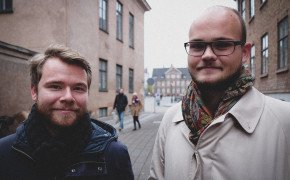Universitetsavisen
Nørregade 10
1165 København K
Tlf: 35 32 28 98 (mon-thurs)
E-mail: uni-avis@adm.ku.dk
Section
The Confederation of Danish Industry (DI) is worried about dwindling numbers among German graduates, as Germany is Denmark’s biggest trade partner. According to a professor, the political decision to give humanities a lower priority has taken its toll on the field of study.

Just before Christmas you could find a brief story at the bottom of a newsletter about the Natural History Museum of Denmark. The news item was a small, low key conclusion to a huge conflict at the University of Copenhagen.

»Being an activist and fighting for a world that is more just is a fundamental condition of my existence. It only stops when I am no longer here. It is part of my existence. This is how I look at it.«

»I get upset and I get frustrated, and that's my motivation. I need hope, and I don’t want to feel powerless all the time.«

»We should not be pointing to each other, saying that what they do is all wrong and calling out people as polluters. It is better to show that we can do these things and still have an easy life.«

In the course of two years, students moved from being virtually invisible in the climate debate to capturing the agenda and making demands on both university management and the decision makers in the Danish parliament.

Both researcher seats on the University of Copenhagen board went to candidates from the 'Involve the researchers!' list. The Student Council’s Olivia Boesen won the students' mandate, while Dorte Brix was elected by the technical and administrative staff.

According to department administrator Anne Marie Shuhaiber Clemensen it is to her advantage as a candidate for the board that she is not affiliated with an interest group: »I don’t have a political agenda«.

If elected to the board, Konservative Studerende [Conservative Students, ed.] want to minimize bureaucracy and put an end to the ‘culture of victimhood’.

Top candidate for Frit Forum Frederikke Gjerløff Werther wants the board to ensure that »the culture of victimhood doesn’t run wild.«
